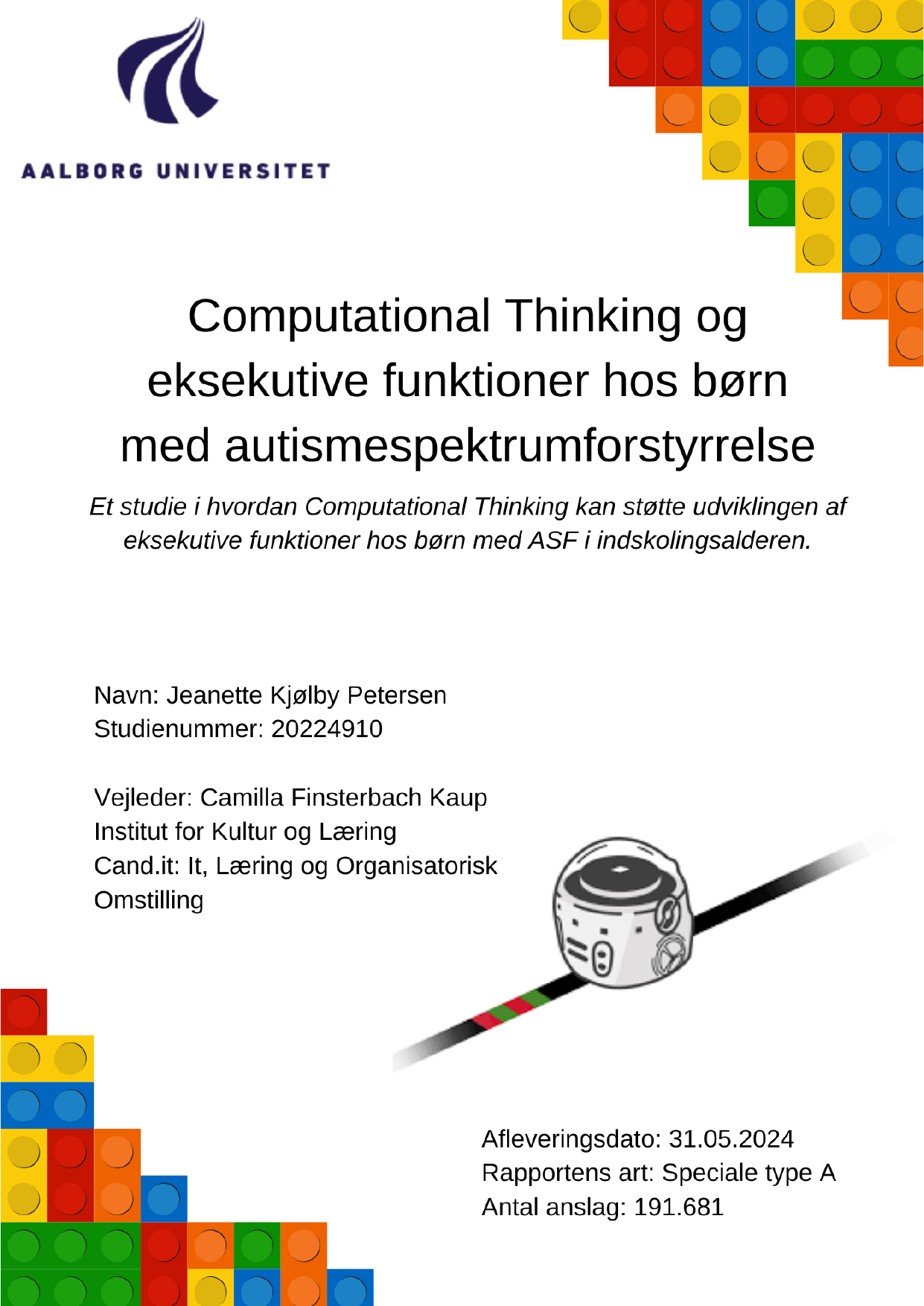
Computational Thinking og eksekutive funktioner hos børn med autismespektrumforstyrrelse. - Et studie af hvordan Computational Thinking kan støtte udviklingen af eksekutive funktioner hos børn med ASF i indskolingsalderen.
Oversat titel
Computational Thinking and executive functions in children with autism spectrum disorder. - A study in how Computational Thinking can support the development of executive functions in primary school children with ASD.
Forfatter
Semester
4. semester
Udgivelsesår
2024
Afleveret
2024-05-30
Antal sider
100
Abstract
Autism spectrum disorder (ASD) is a neurological and developmental disorder that effect the way people think, interact and lean. The challenges in everyday life for people with ASD includes struggles caused by weak executive functions (EF), such as cognitive flexibility, working memory and planning skills. This thesis investigates how Computational Thinking (CT) can aid and support the development of executive functions (EF) in children with (ASD) through programming digital artifacts created for learning purposes. Through a Desing-Based Research methodology, the study demonstrates how an educational design in CT can be conducted with a pragmatic and abductive approach. Iterative cycles of design, implementation and evaluation were conducted in collaboration with the professional staff in a special educational setting and. Data collection included questionnaire, observation, video, semi structured interview, and a qualitative assessment to capture the impact of CT activities on EF in children with ASD. The findings include that CT have a positive effect on EF in children with ASD. The close collaboration with the staff and the pedagogical consideration for the children’s challenges caused by ASD, resulted in an iterative design, where CT was able to improve the EF during the activities. Notable findings were observed in EF in areas as cognitive flexibility, the ability to plan in sequences and manage more demands simultaneously than in usual circumstances. These improvements were particularly evident when the CT activities aligned with the children’s special interests, and thereby facilitating a state of flow. The study concludes that integration of CT in school activities can effectively support the development of EF in children with ASD, provided the activities are tailored to their interests and abilities. Through engaging in interest-based activities that promote cognitive flexibility and problem-solving skills, CT has the potential to enhance EF in children with ASD.
